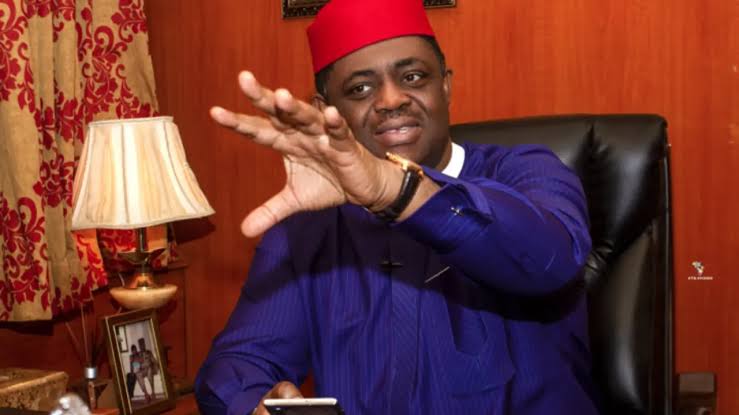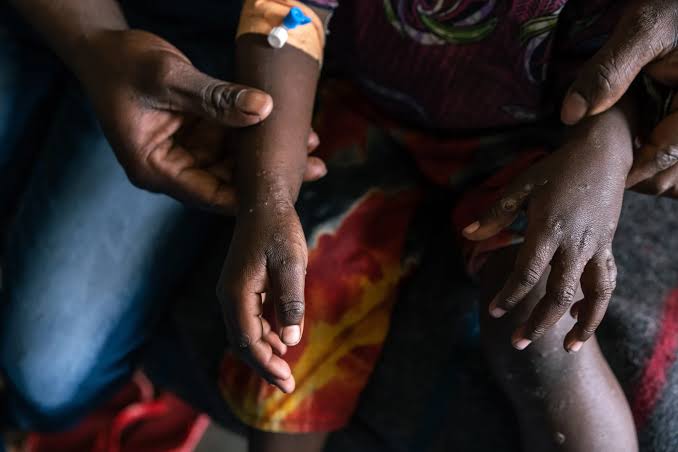Metro
‘No going back’, organisers of #EndBadGovernance protest tell Nigerian Govt
Published
6 months agoon
By
Isaac Dachen
Organizers of the planned #EndBadGovernance protest scheduled to hold across Nigeria from August 1st to the 10th have refused to back down despite pleas from the government, politicians, religious bodies, traditional rulers and respected leaders of thought.
The nationwide protest is aimed at drawing the attention of the government to the unbearable hardship, hunger, high cost of living, and bad governance and despite attempts by government at different levels and security agencies trying everything possible to dissuade the organizers to shelve their plans, they have insisted on going ahead with their plans of hitting the streets as planned.
The groups numbering over 26, made it known on different platforms that they would take to the streets to protest the prevailing hardship, hunger, and bad governance and there would be no going back.
To show their seriousness, they have to at least 20 state governments and the security agencies seeking permission to use state infrastructure to carry out their civic duty.
Some of the groups, according to findings, include Concerned Nigerians, Nigerians Against Hunger, Initiative for Change, Take it Back Movement, Revolution Now, Human Rights Co-Advocacy Group, Nigerians Against Corruption Initiative, Citizens for Change Advocacy Initiative, Timely Intervention, and Active Citizens Group.
Others are Students for Change, We Coalition, Total Intervention, Refurbished Nigeria, Tomorrow Today, Our Future in Our Own Hands Initiative, Youths Against Tyranny, and Call a Spade a Spade Movement, among others.
One of the organisers of the protest and the Convener of the Revolution Now Movement, Omoyele Sowore, also released a list of locations for the upcoming #EndBadGovernanceInNigeria protest, scheduled to take place in 35 states and the Federal Capital Territory.
Sowore, a former presidential candidate, listed the designated locations for the protest in various states including Lagos, Kano, Bauchi, Enugu, Jigawa, Ekiti, Cross River, and the Federal Capital Territory, among others.
“The listed locations include Ikorodu, Lagos Island, Lekki/Ajah axis, Badagry, Ikeja, and Epe in Lagos State; Kano main town in Kano State; Azare and Bauchi town in Bauchi State; Enugu city and Nsukka in Enugu State; and Dutse and Kazaure in Jigawa State.
“Other locations are Ado-Ekiti and Ikere Ekiti in Ekiti State; Calabar in Cross River State, and Gwagalada and Central Business District in the Federal Capital Territory, among other,” he said.
Another organiser who is the Director of Mobilisation of the Take it Back Movement, Damilare Adenola, said in a statement that the protest was backed by several groups in the country.
“This is not about one group or another. It is about angry and hungry Nigerians who are tired of this system. Protest is our right. Nobody can take it away from us.
“We have already written to the Minister of the FCT, Nyesom Wike, to avail us of the National Stadium built with taxpayers’ money for our peaceful demonstration,” he said.
Adenola said they have demanded the provision of 24-hour power supply, toilet facilities, water, and security for the convenience of citizens who would be camped out at the location.
The statement titled, “Request for use of Eagle Square Abuja for #EndBadGovernance protest”
reads:
“As one of the groups organizing the forthcoming #EndBadGovernance protest, #DaysOfRage starting from August 1st to 10th, 2024, we at the Take It Back Movement write to your esteemed office to notify you of our decision to use Eagle Square as a point of convergence for patriotic Nigerians to demand better governance.”
A representative of Nigerians Against Hunger, Tunde Thomas, who also spoke on the protest, said Nigerians were tired of the hunger in the land.
“Our demands are simple – End hunger. We cannot be the most populous black nation in the world and be hungry.
“The country is in a mess. We need to recognise that. Members of our group are mostly in the Middle Belt and in Cross River. We would come out en masse and make sure we don’t stop till our demands are met.”
While echoing the same resolve, the National Chairman of the Northern Comrades Movement of Nigeria, Jabir Yaro, said:
“Nothing will stop this protest. Nobody in this world can stop this protest. It will happen and everybody should come out en masse to protest. No level of intimidation will stop us.”
You may like
-


Nigeria: Marketers predict further price cut as another refinery begins operations
-


Nigeria, China extend $2bn currency swap deal
-


‘Don’t start what you can’t finish’, ex-Nigerian official replies President Tchiani
-


Again, Starlink raises prices of its services in Nigeria
-


Niger citizen knocks President Tchiani for neglecting critical issues at home to peddle rumours against Nigeria
-


Dumping England for Nigeria the best decision of my life— Ademola Lookman
Metro
‘Don’t start what you can’t finish’, ex-Nigerian official replies President Tchiani
Published
3 weeks agoon
December 29, 2024
Former Nigerian Aviation Minister, Femi Fani-Kayode, has told President Abdourahamane Tchiani of Niger Republic to refrain from making infantile and puerile allegations that Nigeria is conniving with France and the Lakurawa terrorists to destabilize his country.
Tchiani had, during an interview with Radio-Télévision du Niger on December 25, accused the Nigerian government of using the sect, with the help of foreign security forces notably from France, to wreck havoc in his country, insinuating that President Bola Tinubu had been paid by the France government to allow their military to establish a base in Borno State.
He also alleged that Nigeria, acting in collaboration with the French government and the terrorist group, was responsible for an attack on the Niger-Benin oil pipeline on December 13, 2024, in Gaya, Dosso Region of Niger Republic.
But in a statement he posted on his official X handle on Sunday, Fani-Kayode who is popularly called FFK, said Nigeria does not need the help of France and thr Lakurawa terrorist to destabilize Niger Republic.
FFK insisted that Nigeria is not part of the western powers sponsoring terrorists organizations to wretch havoc on the West African sub region.
“If Nigeria wanted to destabilise Niger Republic, I do not believe that we would need France or any terrorist organisation to do so,” the politician wrote.
He noted that on the contrary, western powers are the ones behind terrorist organizations operating in the region and other parts of Africa.
“I have maintained that the western powers are behind the terrorist groups that have plagued the West African sub region over the last 15 years and for the last ten years I have publicly stated this and given my reasons.
“I am equally certain that Nigeria, being one of the major victims of these terrorist organisations, has had no part in it and that no Nigerian President, past or present, has indulged in such grave and dangerous actions.”
He went on to advice Tchiani against provoking Nigeria with unguarded and infantile utterances capable of stoking Nigeria against his country.
“The Nigerien Military Head of State, Abdourahamane Tchiani, would do well to be careful not to provoke our wrath with his absurd assertions and remain mindful of the fact that the defence budget for his country, Mali and Burkina Faso COMBINED is not up to 25% of Nigeria’s.
“Tchiani’s grave allegations that President Tinubu and NSA Nuhu Ribadu have been bought by the French to destabilise Niger Republic, that our Government is jointly sponsoring a terrorist group with France to do same and that there are French military bases in Nigeria are infantile, puerile, mendacious and asinine.
“It is a squalid attempt by the Nigerien Head of State to sow the seeds of dissention in our country, to alienate our people from constituted authority, to divide our people and to undermine the Tinubu administration,” he added.
“It is also highly provocative and the FG should consider the possibility of taking other more extreeme measures if this reckless provocation continues.
“We are under no obligation to show restraint when we are being undermined and maligned.
Metro
Zambia announces second case of Mpox as country battles cholera outbreak
Published
4 weeks agoon
December 28, 2024
The Zambian Ministry of Health has reported a second case of Monkeypox, popularly known as Mpox, in Kitwe region of Copperbelt Province.
Acting Health Minister, Douglas Syakalima, who made the announcement on Friday during a press conference in Lusaka, revealed that the Ministry is intensifying contact tracing and surveillance to curb further spread of the disease.
Syakalima who also addressed the ongoing cholera outbreak in Nakonde, Muchinga Province, said thus far, seven cases have been confirmed.
“The second Mpox case involves a 34-year-old female from Ndeke, Kitwe, who presented with symptoms including rash, fever, swollen lymph nodes, and oral ulcers on December 21,” Syakalima said at the press parley.
He noted that there was an initial misdiagnosis with chickenpox in Lumwana, North-Western Province, but laboratory tests on December 26 confirmed that it was Mpox.
Syakalima added that the patient’s husband, who works in a neighboring country with confirmed Mpox cases, had experienced similar symptoms earlier this month.
“Both patients are now stable and under close monitoring. A rapid response team has been deployed to trace contacts and prevent further spread,” he said, adding that eight close contacts of the couple are currently under observation, while nationwide surveillance has been heightened.
The Health Minister added that on December 26, five cholera cases were confirmed at Nakonde Urban Clinic with the first three patients, a husband, wife, and their son, admitted on December 24 with symptoms of diarrhea, vomiting, dehydration, and shock.
“Today, two more cases have been reported, bringing the total to seven confirmed cholera cases from the same household,” Syakalima stated.
He explained that Nakonde’s location as a border town with high cross-border movement poses a risk for the disease to spread to other parts of the country.
The Minister however, assured that the Ministry has deployed teams to trace contacts, chlorinate water sources, disinfect affected homes, and activate Incident Management Systems at district and provincial levels while surveillance has been heightened, and contact tracing is ongoing for 33 individuals.
“The government remains committed to preventing further spread of these diseases,” Syakalima assured.
EDITOR’S PICK


Nigeria: Marketers predict further price cut as another refinery begins operations
Oil marketers and the Nigerian Midstream and Downstream Petroleum Regulatory Authority expect refined petroleum product prices to reduce as another...


Kenya: Consumer inflation rises to 3.0% from 2.8%
Kenya’s statistics agency said on Tuesday that Kenya’s consumer price inflation increased slightly to 3.0% year-over-year in December from 2.8%...


South Africa’s Transnet’s half-year deficit hits $117m
Transnet, a state-owned logistics company in South Africa, announced on Tuesday that it had lost 2.2 billion rand ($117.48 million)...


Nigeria, China extend $2bn currency swap deal
A 15 billion yuan ($2 billion) currency-swap arrangement between China and Nigeria has been extended to boost investment and commerce...


Egypt’s central bank maintains overnight rates
As anticipated, Egypt’s central bank has maintained its overnight interest rates, stating that although inflation was predicted to drop significantly...


Illicit flows cost Nigeria, others $1.6bn daily— AfDB
According to the African Development Bank (AfDB), illicit money flows and profit shifting by multinational corporations doing business in Africa...


‘Don’t start what you can’t finish’, ex-Nigerian official replies President Tchiani
Former Nigerian Aviation Minister, Femi Fani-Kayode, has told President Abdourahamane Tchiani of Niger Republic to refrain from making infantile and...


Again, Starlink raises prices of its services in Nigeria
Elon Musk’s satellite internet service provider, Starlink, has again jacked up the prices of its services in Nigeria after an...


Former President of Moroccan club Raja sentenced to 3 years in prison
The former President of Moroccan top club, Raja Casablanca, Mohamed Aouzal, has been sentenced to three and a half years...


Zambia announces second case of Mpox as country battles cholera outbreak
The Zambian Ministry of Health has reported a second case of Monkeypox, popularly known as Mpox, in Kitwe region of...


